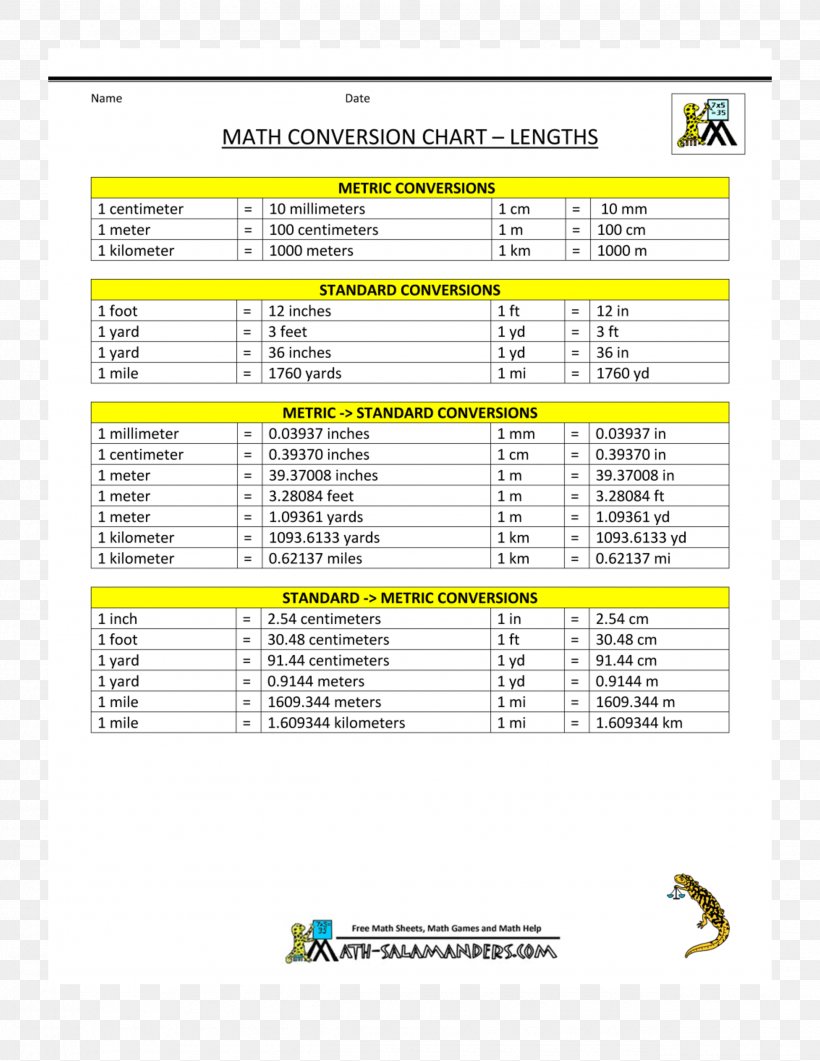Standard to Metric Conversion: A Brave New World of Measurement
Ever found yourself staring blankly at a recipe, desperately trying to convert cups to milliliters? Or maybe you've been baffled by the seemingly arbitrary units used to measure distance, weight, and temperature in different parts of the world. You, my friend, have stumbled upon the great divide of measurement systems: the standard (or imperial) system and the metric system.
For those accustomed to the seemingly haphazard collection of inches, pounds, and Fahrenheit, the metric system, with its neat base-ten structure, can feel like a breath of fresh air. But like any change, it can also feel daunting, a tangled web of unfamiliar terms and conversions. But fear not! Understanding the shift from standard to metric is less about rote memorization and more about appreciating the elegance and logic that underpins it.
The metric system, officially known as the International System of Units (SI), has its roots in the scientific revolution of the 18th century. Seeking a universal and standardized system of measurement, French scientists developed a system based on multiples of ten, making conversions between units a simple matter of moving decimal points. This system, adopted by France in 1799, gradually spread across the globe, becoming the preferred system for scientific and international communication.
So why, you might ask, do we still grapple with the standard system? The answer lies in a mix of historical inertia, cultural familiarity, and, let's be honest, a dash of stubbornness. The United States, despite being one of the early proponents of the metric system, ultimately stuck with its familiar (albeit less practical) system. This has led to a world where understanding both systems, and the ability to convert between them, is increasingly important.
The beauty of the metric system lies in its simplicity. Want to convert meters to kilometers? Just move the decimal point three places to the left. Grams to kilograms? Same principle. This inherent logic makes the metric system significantly easier to learn and use, particularly for tasks involving complex calculations or large-scale measurements.
Imagine a world where scientific research, international trade, and even everyday cooking are conducted using a single, universally understood system of measurement. That's the promise of the metric system, a promise of increased efficiency, reduced errors, and a more interconnected world.
While the complete global adoption of the metric system might seem like a distant utopia, understanding standard to metric conversion remains crucial. Whether you're a student grappling with physics problems, a traveler navigating foreign road signs, or simply trying to follow a recipe from a different continent, the ability to seamlessly switch between these systems opens up a world of possibilities.
So, embrace the challenge! Dive into the world of metric conversion, explore the logic, and discover the simplicity that awaits. You might just find that it's not as daunting as it seems, and who knows, you might even start to enjoy the clarity and elegance that the metric system brings to our increasingly interconnected world.
Unleash your inner artist finding the perfect imagen de rosas para colorear
Dafont free fonts for tattoos a world of ink spiration
Unlocking the secrets of van buren co arkansas your guide to the natural states hidden gem














